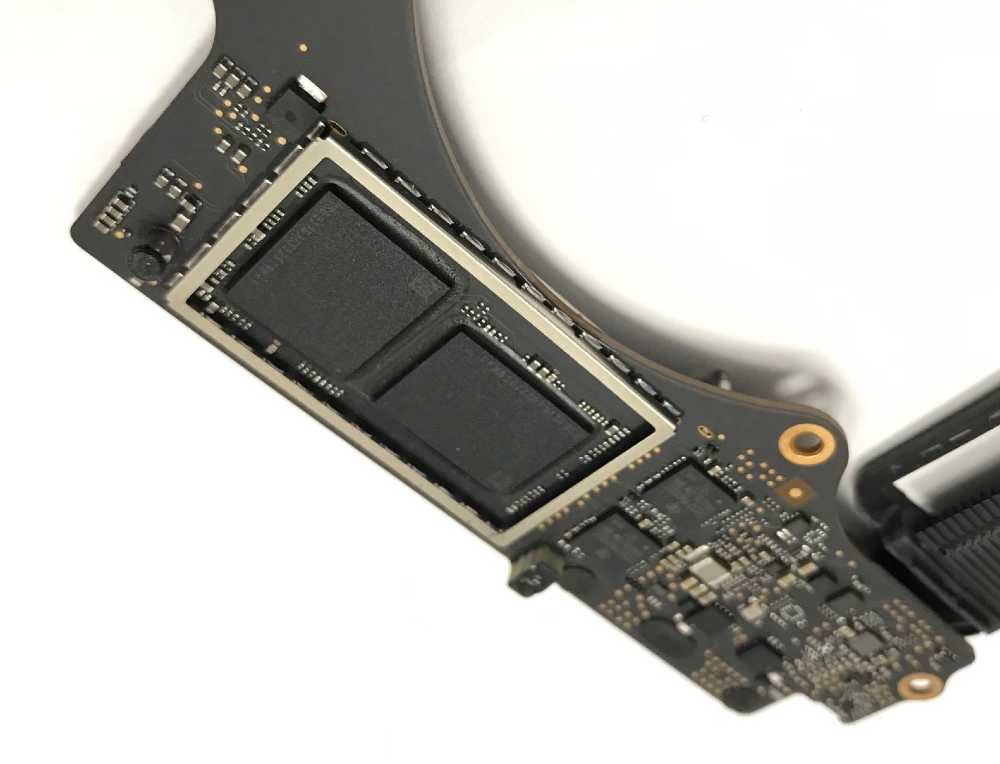Case Study | Overcoming Data Recovery Challenges in Encrypted SSD Drives
Successfully recovering data from an encrypted SSD soldered to a damaged MacBook motherboard.
In today's digital age, the integration of security measures into hardware and software components of computers has become paramount. However, this advancement presents a new set of challenges, particularly in data recovery scenarios. One such challenge arises when manufacturers solder solid-state drives (SSD) to motherboards, complicating the data recovery process. Moreover, SSD drives are sensitive to heat, and overheating during soldering can result in up to 20% of cells becoming damaged, further exacerbating the recovery process.

Adding another layer of complexity, modern encryption technologies like BitLocker in Windows and the T2 Security Chip in Mac computers ensure data security by encrypting the entire storage volume. These encryption mechanisms, when coupled with trusted platform modules (TPM) or hardware-accelerated AES engines, make it theoretically impossible to retrieve data from encrypted drives outside their original systems.
The Windows uses BitLocker, a security feature that provides encryption for entire volumes. BitLocker works best when used with a Trusted Platform Module (TPM), ensuring that a device hasn’t been tampered with while the system is offline. Similarly, Mac computers that have the Apple T2 Security Chip integrate security into both software and hardware to provide encrypted-storage capabilities. The built-in SSD data is encrypted using a hardware-accelerated AES engine built into the T2 chip, with 256-bit keys tied to a unique identifier within the chip.
Monte, a resident of Dallas, faced a daunting challenge when his MacBook malfunctioned after hitting the keyboard too hard. Concerned about retrieving crucial email messages stored in Mac Mail, especially those inexplicably deleted by Yahoo, Monte sought assistance from ACE Data Recovery.
Monte's plea highlighted a common predicament: the critical need to recover data from partially damaged motherboards that fail to boot, while ensuring the integrity of encrypted storage and security chips. ACE Data Recovery responded by leveraging its expertise and resources to develop a unique hardware and software solution tailored to Monte's specific case.

Utilizing the original computer's encrypted storage and security chip, ACE Data Recovery successfully extracted the Mac Mail folder containing Monte's invaluable email messages. Importantly, precautions were taken to prevent the laptop from syncing with Yahoo, thus safeguarding against the loss of any additional data.
Following the extraction process, the recovered Mac Mail folder was meticulously packaged and returned to Monte for further analysis. Armed with this invaluable data, Monte could compare and reconcile the retrieved emails with those stored in his online Yahoo mailbox, thereby mitigating the impact of the inexplicable deletions.
"While the integration of encryption measures into SSD drives and security chips enhances data security," said Sergii Baginskyi, leading NAND memory recovery expert, "it also presents formidable obstacles in the realm of data recovery."
This case study underscores the importance of innovation and expertise in overcoming the intricate challenges posed by modern data recovery scenarios. By developing a bespoke solution tailored to Monte's unique circumstances, ACE Data Recovery demonstrated its commitment to delivering comprehensive and effective data recovery services.
Moreover, this successful endeavor serves as a testament to the ever-evolving nature of SSD data recovery techniques, which must continually adapt to address the complexities introduced by advancements in hardware security and encryption technologies. Nevertheless, with the right expertise and ingenuity, as exemplified by ACE Data Recovery in Monte's case, even the most daunting challenges can be overcome, ensuring the retrieval of invaluable data in critical situations.
